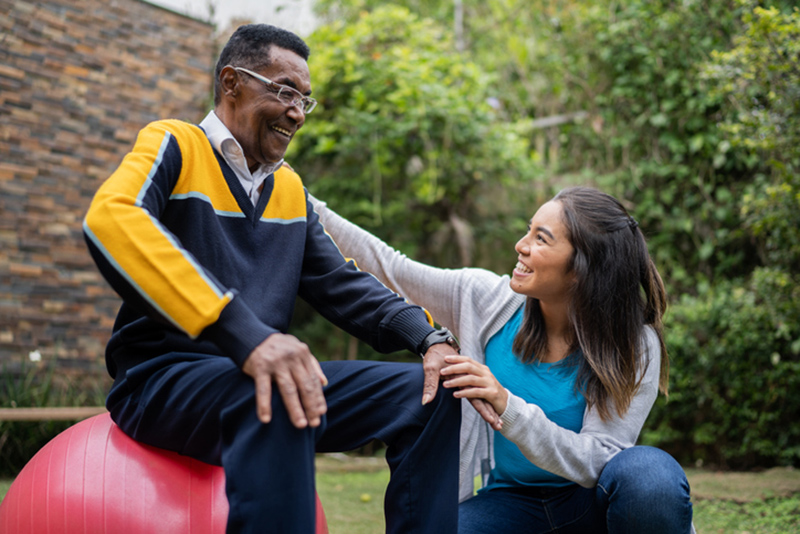
In the aftermath of a stroke, care is critical and home care services can support stroke patients in their recovery efforts.
Experiencing a stroke is a frightening, unexpected experience. The outcomes can be minimal to life-changing, but a very important factor is clear: follow-up care is absolutely essential. Fortunately, a great deal of this care can be provided in the comfort of home. If you are taking care of a loved one in the aftermath of a stroke, below are some of the ways you can help guarantee the most effective healing.
What Are the Best Ways to Help a Loved One at Home After a Stroke?
An important first step is communicating with the person’s medical team. Find out as much as possible about what may have contributed to the stroke, what the likely outcome is, and what they recommend with respect to a treatment and recovery plan. Ask the doctor for resources and information about strokes. Knowledge will be key in your ability to deliver the most effective help.
In addition, our expert caregivers in Portland, TX suggest the following:
- Begin a diary. A simple notebook or electronic document is all you need. Start with a baseline entry on the person’s physical and emotional state, any medications being taken, sleeping and eating patterns, etc. It’s not uncommon for new stroke symptoms to develop months after a stroke, and any changes should be brought to the physician’s attention as soon as possible.
- Offer encouragement. Sticking to the doctor’s suggested lifestyle changes isn’t always easy. It is possible there will be a physical therapy exercise plan to follow, as regular exercise is an excellent tool for recovery for the brain and the body. Encourage the person to engage in these activities exactly as directed. Joining in to work out with the person is a good way to ensure compliance with doctor’s orders.
- Avoid taking control. You might be inclined to want to do as much as possible for the person, so they can rest and not overextend themselves. However, it’s important for the person to accomplish as much on their own as possible in order to maximize recovery. Intervene when absolutely required with just enough assistance to enable them to complete a challenging task.
- Have patience. The healing process post-stroke may take quite a bit of time, and there will likely be a number of challenges along the way. The person may also experience pseudobulbar affect, which causes abrupt bouts of laughter or crying for no obvious reason. They could also experience depression, anxiety and fear of another stroke occurring, or grief. These kinds of emotional changes can be distressing for both of you, but treatment methods are available to help.
- Look after yourself. Caregiving for someone you love after a stroke can be physically and emotionally draining. Be careful to establish appropriate boundaries to avoid caregiver stress and burnout. Engage the support of other family members, friends, or a skilled caregiver to allow you time to step away to take care of your own health and wellness.
The Crucial Role of Home Care Post-Stroke
An in-home caregiver should be an integral part of a person’s recovery following a stroke. Some of the various ways a home care provider like Anthem Home Care can help include:
- Providing fall prevention as well as other home modification suggestions for improved safety and independence
- Offering transportation and accompaniment to medical appointments and procedures
- Running errands, such as picking up prescriptions and groceries
- Planning and preparing healthy meals according to any dietary restrictions
- Serving as a friendly companion for conversations, help with engaging in exercise programs, playing fun and mind-stimulating games, etc.
- Helping with personal hygiene needs
- And much more
Contact Anthem Home Care’s caregivers in Portland, TX and the surrounding areas at 361-643-2323. Learn how our fully trained and experienced caregivers can ensure a smoother recovery for someone you love following a stroke.
